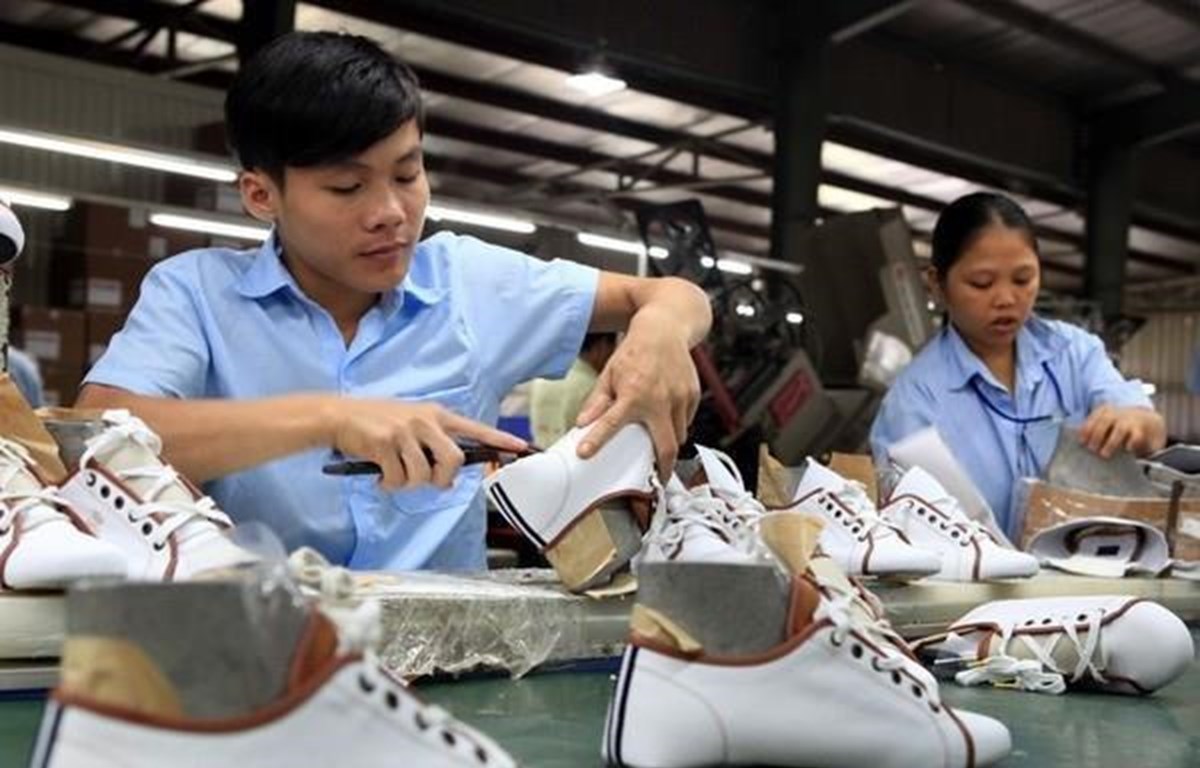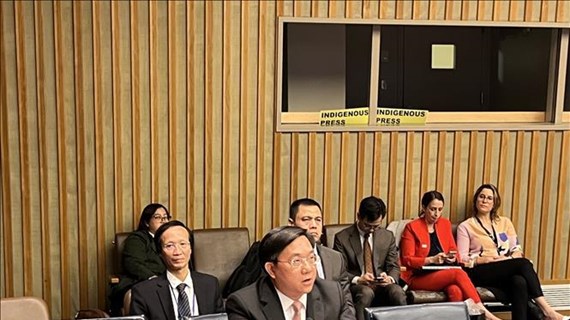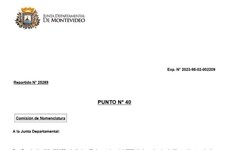Vietnam works to adapt national legislation to int’l labour standards
Vietnam is gradually aligning its national legislation with global labour standards so as to realise its commitments when taking part in international agreements.

(Illustrative image: VNA)
Hanoi (VNA) – Vietnam is gradually aligning its national legislation with global labour standards so as to realise its commitments when taking part in international agreements.
Labour-related commitments under the EU – Vietnam Free Trade Agreement (EVFTA) are meant to ensure a fair competition environment in trade relations. Therefore, all parties concerned have to comply with those commitments, heard a seminar on the draft revised Labour Code and Vietnam’s labour commitments held on September 27 by the Ministry of Labour, Invalids and Social Affairs (MoLISA) and the International Labour Organisation (ILO).
In these commitments, the country did not set up its own standards but reiterated its respect for, promotion of and effective implementation of the four core labour standards under the 1998 ILO Declaration on Fundamental Principles and Rights at Work, namely freedom of association and the effective recognition of the right to collective bargaining, the elimination of forced or compulsory labour, the abolition of child labour, and the elimination of discrimination in respect of employment and occupation.
Nguyen Van Binh, Deputy Director of the MoLISA’s Department of Legal Affairs, said Vietnam is step by step adapting national legislation to international labour standards to realise its commitments. Some regulations in the Labour Code will be amended to further match international standards.
[Vietnam reasserts to realise int’l commitments on labour]
He noted that existing regulations on forced labour, child labour, working hours, rest periods, minimum wage, and occupational safety and health have basically been in line with relevant international standards. This time’s revision of the Labour Code aims to make the law better match the reality in the country.
The principle of equality and non-discrimination and the rights to freedom of association and to collective bargaining will be amended to match Vietnam’s labour commitments in new-generation free trade agreements, the official said.
 The Labour Code is being modified to be in line with international standards (Photo: VietnamPlus)
The Labour Code is being modified to be in line with international standards (Photo: VietnamPlus)
Additionally, Vietnam will also effectively implement the ILO conventions it has ratified in both national legislation and practice, Binh said, adding that the country will not violate basic labour standards to promote its competitiveness or protect domestic production.
Pointing out certain limitations in Vietnam’s awareness of international labour standards, Chief Technical Adviser at the ILO Vietnam office Andrea Prince said the country has yet to have a national-level system for monitoring international labour standards. Besides, trilateral coordination in the application of and reporting on the application of international labour standards is still a pro forma activity.
She noted countries should gradually change their awareness of the application of international labour standards since the ratification of relevant conventions will provide a minimum foundation for fair competition at the national and international levels; create an international framework to ensure that global economic growth will benefit all people; and ensure the health, benefits and voices of labourers, helping them to gain other legitimate interests.
As of June 2019, Vietnam, a member of the ILO since 1992, had ratified 24 conventions of this organisation, including six of the eight core conventions on fundamental principles and rights at work, three of the four conventions on labour market governance, along with some other technical ones.
Most recently, the National Assembly adopted the ILO’s Convention No. 98 on the Right to Organise and Collective Bargaining at its 7th session in June.
Congratulating the country on the adoption, ILO Vietnam Director Chang-Hee Lee said: “The ratification of Convention No. 98 will accelerate the spread of genuine collective bargaining for win-win solutions at Vietnamese workplaces, which is likely to result in better working conditions, higher productivity and shared prosperity, contributing to sustainable development.”
The eight core conventions, including Convention No. 98, have become a central part of new-generation free trade agreements, including the Comprehensive and Progressive Agreement for Trans-Pacific Partnership (CPTPP) and the EVFTA, as well as most of corporate socially responsible policies of multi-national enterprises.
Convention No. 98 is the sixth fundamental convention Vietnam has ratified. The others include Convention No. 29 on forced labour, Conventions No. 100 and 111 on non-discrimination, and Conventions No. 138 and 182 on child labour.
For the remaining two conventions, MoLISA Minister Dao Ngoc Dung said Vietnam will also work on the preparation to ratify Convention No. 105 on forced labour in 2020 and Convention No. 87 on freedom of association in 2023./.
Labour-related commitments under the EU – Vietnam Free Trade Agreement (EVFTA) are meant to ensure a fair competition environment in trade relations. Therefore, all parties concerned have to comply with those commitments, heard a seminar on the draft revised Labour Code and Vietnam’s labour commitments held on September 27 by the Ministry of Labour, Invalids and Social Affairs (MoLISA) and the International Labour Organisation (ILO).
In these commitments, the country did not set up its own standards but reiterated its respect for, promotion of and effective implementation of the four core labour standards under the 1998 ILO Declaration on Fundamental Principles and Rights at Work, namely freedom of association and the effective recognition of the right to collective bargaining, the elimination of forced or compulsory labour, the abolition of child labour, and the elimination of discrimination in respect of employment and occupation.
Nguyen Van Binh, Deputy Director of the MoLISA’s Department of Legal Affairs, said Vietnam is step by step adapting national legislation to international labour standards to realise its commitments. Some regulations in the Labour Code will be amended to further match international standards.
[Vietnam reasserts to realise int’l commitments on labour]
He noted that existing regulations on forced labour, child labour, working hours, rest periods, minimum wage, and occupational safety and health have basically been in line with relevant international standards. This time’s revision of the Labour Code aims to make the law better match the reality in the country.
The principle of equality and non-discrimination and the rights to freedom of association and to collective bargaining will be amended to match Vietnam’s labour commitments in new-generation free trade agreements, the official said.
 The Labour Code is being modified to be in line with international standards (Photo: VietnamPlus)
The Labour Code is being modified to be in line with international standards (Photo: VietnamPlus)Additionally, Vietnam will also effectively implement the ILO conventions it has ratified in both national legislation and practice, Binh said, adding that the country will not violate basic labour standards to promote its competitiveness or protect domestic production.
Pointing out certain limitations in Vietnam’s awareness of international labour standards, Chief Technical Adviser at the ILO Vietnam office Andrea Prince said the country has yet to have a national-level system for monitoring international labour standards. Besides, trilateral coordination in the application of and reporting on the application of international labour standards is still a pro forma activity.
She noted countries should gradually change their awareness of the application of international labour standards since the ratification of relevant conventions will provide a minimum foundation for fair competition at the national and international levels; create an international framework to ensure that global economic growth will benefit all people; and ensure the health, benefits and voices of labourers, helping them to gain other legitimate interests.
As of June 2019, Vietnam, a member of the ILO since 1992, had ratified 24 conventions of this organisation, including six of the eight core conventions on fundamental principles and rights at work, three of the four conventions on labour market governance, along with some other technical ones.
Most recently, the National Assembly adopted the ILO’s Convention No. 98 on the Right to Organise and Collective Bargaining at its 7th session in June.
Congratulating the country on the adoption, ILO Vietnam Director Chang-Hee Lee said: “The ratification of Convention No. 98 will accelerate the spread of genuine collective bargaining for win-win solutions at Vietnamese workplaces, which is likely to result in better working conditions, higher productivity and shared prosperity, contributing to sustainable development.”
The eight core conventions, including Convention No. 98, have become a central part of new-generation free trade agreements, including the Comprehensive and Progressive Agreement for Trans-Pacific Partnership (CPTPP) and the EVFTA, as well as most of corporate socially responsible policies of multi-national enterprises.
Convention No. 98 is the sixth fundamental convention Vietnam has ratified. The others include Convention No. 29 on forced labour, Conventions No. 100 and 111 on non-discrimination, and Conventions No. 138 and 182 on child labour.
For the remaining two conventions, MoLISA Minister Dao Ngoc Dung said Vietnam will also work on the preparation to ratify Convention No. 105 on forced labour in 2020 and Convention No. 87 on freedom of association in 2023./.













